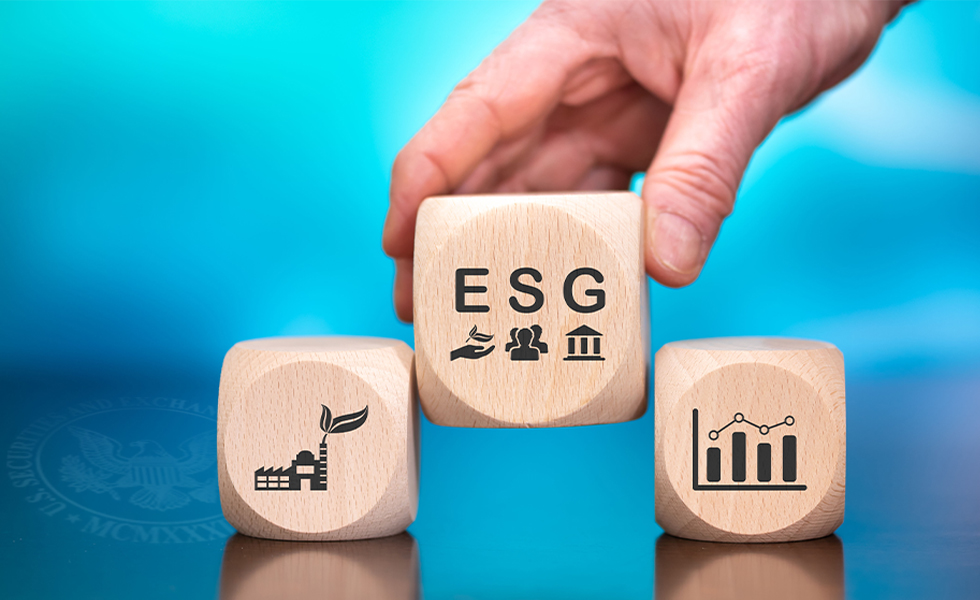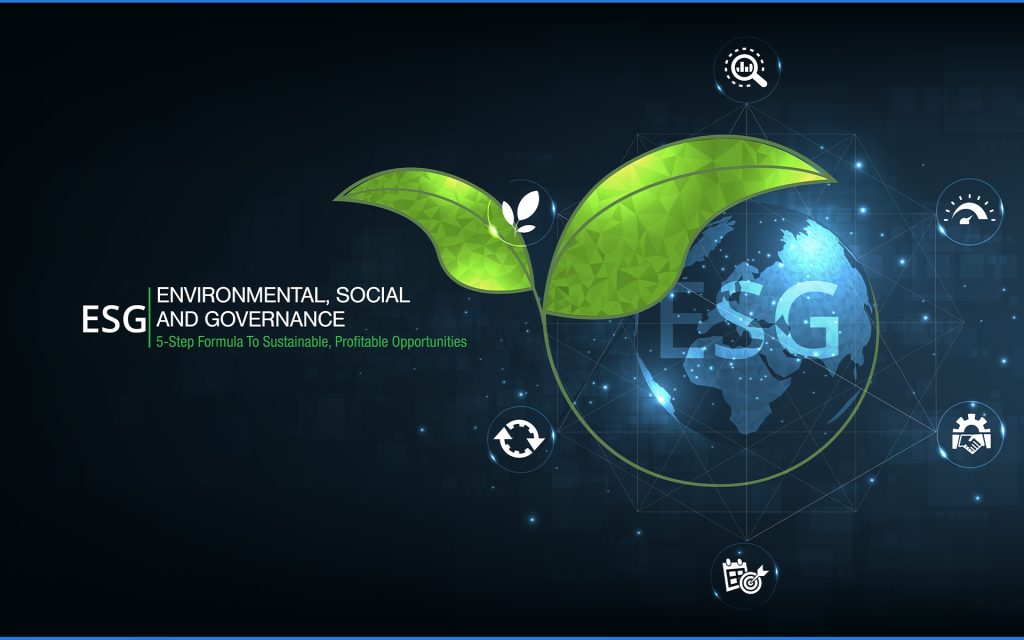ESG Must Become a Top Priority! This 5-Step Formula Can Lead to Sustainable, Profitable Opportunities
– July 21, 2022 –
 Perhaps you’ve heard about the SEC’s proposed rules. These regulations would require publicly traded organizations to provide investors with standardized environmental, social and governance (ESG) disclosures backed by data. However, these reporting requirements would impact all entities within a company’s value chain, publicly traded or not.
Perhaps you’ve heard about the SEC’s proposed rules. These regulations would require publicly traded organizations to provide investors with standardized environmental, social and governance (ESG) disclosures backed by data. However, these reporting requirements would impact all entities within a company’s value chain, publicly traded or not.
So, why not get ahead of it and give your company some competitive edge?
Use the ESG framework below to make sustainable, future-proof decisions, and you might benefit from profitable opportunities.
1. Identify Your Waste’s Effects
Every process within your business either adds value or adds to your waste bin. Have you considered the benefits a waste audit can have? By thoroughly reviewing your waste’s inputs and outputs, you can see what’s coming in and going out and how it’s impacting your operations. Doing so will give you such insights as:
• What materials are coming in and the waste they create
• What’s being/can be recycled and reused
• Where do waste containers need to be placed, how often do they need to be picked up, and if they are the right size
Why pay more for what you don’t need? A waste audit can help determine exactly what you need to run more efficiently, boosting your sustainability story and impacting any related ESG scores in the process.
2. Measure Data Against Requirements/Others
Your waste audit is in the can, and your data is collected. Now it’s time to benchmark for performance. Compare and contrast your results with existing policies, SEC requirements, and competitor practices. Measuring your data against others will help you develop strategies to identify even more improvement opportunities.
3. Build Solutions & Set Goals
You can operationalize your ESG principles by identifying and measuring data and looking at market trends relating to sustainability/ESG. Keeping a pulse on these elements will help build the most value for your business financially, socially and environmentally.
For example, let’s say through your ongoing analysis, you recognize there’s a massive amount of contamination in your recycling bins. Obviously, this requires a solution and a goal to keep it from happening again. This may indicate that there’s a need for improved communication and education among your team. In the long run, this will save your time and money.
4. Onboarding & Implementation
This perfectly leads to workforce education and consistent engagement. You’ll only make it important to your staff if it legitimately feels important. It takes time to buy into things. So, start with one or two clear objections to engage your team members. From there, roll out your other initiatives gradually, making these sustainably minded behaviors a habit.
After actionizing these objectives, monitor the process and evaluate how everything aligns with your original goals. This will help determine the most promising activities and further waste prevention opportunities.
5. Start the Cycle Over
Conversations and regulations about sustainability will continue to grow. How much materials cost will continue to fluctuate based on demand, which will change how you conduct your business. Using another material or product to replace your previous one changes your waste output. Naturally, this takes us back to the top of this list, and a new waste handling solution must be found.
The market is already responding positively to ESG initiatives, making it all the more critical for you to get the jump on it. This is where the future is going, and you don’t want to be the business fighting to keep up but the one leading the charge. So, strengthen your competitive advantage and get started today.










